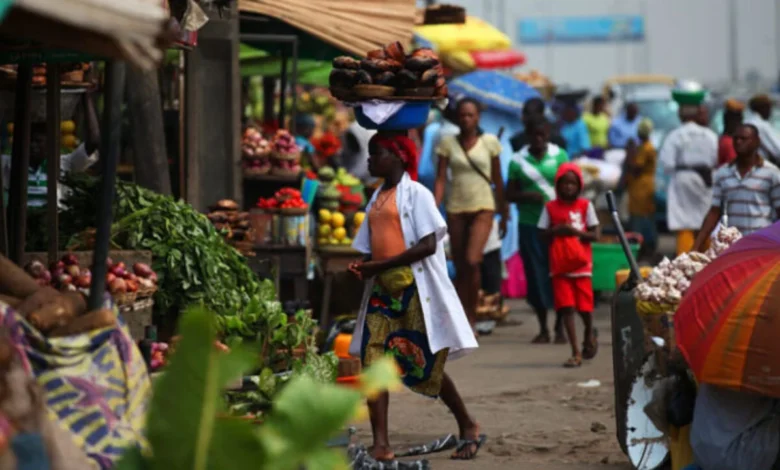Nigeria’s Inflation Rate Soars to 21.82% in January 2023

Nigeria’s inflation rate reversed its downward trend, reaching another record of 21.82% in January 2023, representing a 0.47% increase from the 21.34% recorded in December 2022. This was according to the CPI and Inflation Report for January 2023 released by the National Bureau of Statistics.
The report which was released earlier today showed that food inflation in Nigeria rose to 24.32% in January, up from 23.75% in December 2022. Also, core inflation in Nigeria, which excludes the prices of volatile agricultural products, increased to 19.16% from 18.49%.
According to the report, the largest price increases were observed in Gas, Liquid Fuel, Passenger Air Transport, Automotive Spare Parts, Fuels, and Lubricants for Personal Transport Equipment, as well as Solid Fuel. While for food CPI, the surge in food prices was attributable to oil, bread, cereal, fish, potatoes, yam, etc. In the report, the items that contributed the most to the CPI were: Bread and Cereal (21.67%), Actual and Imputed Rent (7.74%), Potatoes, Yam and Tuber (6.06%), Vegetables (5.44%), and Meat (4.78%).
Also Read: Nigeria’s Oil Output Rises to 1.258 Million BPD in January 2023
As of January 2023, urban inflation was at 22.55%, representing a year-on-year increase of 6.38% from January 2022, on a month-to-month basis, the urban inflation rate for January 2023 increased by 0.17% points to 1.98% from 1.80% in December 2022. While inflation in rural areas rose to 21.13%, representing a change of 6.08% YoY. While on a month-to-month basis, the rural inflation rate rose by 0.14% points to 1.77% in January 2023 from 1.63% in December 2022.
Food inflation hit 24.32%, representing an increase of 7.19% YoY from January 2022. On a month-to-month basis, the food inflation rate in January 2023 rose by 0.20% points to 2.08% against the 1.89% recorded in December 2022. For the twelve months ending in January 2023, the average annual food inflation rate was 21.53%, marking a 1.44% point rise from the previous twelve-month average rate recorded in January 2022 (20.09%).
Overall, the average annual inflation rate for the twelve months ending in January 2023 was 16.52%, which represented a 3.19% point increase from the 13.33% recorded in January 2022.
Bauchi (24.79%), Ondo (24.54%), and Anambra (24.51%) had the highest year-on-year all-items inflation rate in January 2023, while Jigawa (19.09%), Borno (19.62%), and Sokoto (19.90%) recorded the slowest rise in the headline year-on-year inflation. On a month-to-month basis, Lagos (2.91%), Taraba (2.84%), and Ondo (2.68%) recorded the highest increases in January 2023. In contrast, Yobe (0.54%), Jigawa (0.73%), and Oyo (0.87%) experienced the slowest rise in month-to-month inflation.
Also Read: FGN Bonds Sold Out In February 2023, as DMO Raises N724.9 Billion
Kwara (29.03%), Lagos (27.67%), and Ondo (27.38%) had the highest year-on-year food inflation in January 2023, while Jigawa (19.22%), Sokoto (20.80%), and Yobe (21.32%) experienced the slowest rise in year-on-year food inflation. On a month-to-month basis, Lagos (3.67%), Ogun (3.54%), and Ekiti (3.32%) had the highest food inflation in January 2023, while Yobe (-0.50%), Jigawa (0.18%), and Kebbi (0.92%) experienced the slowest rise in month-to-month food inflation.







